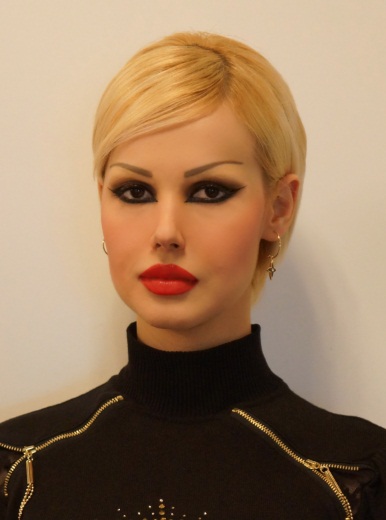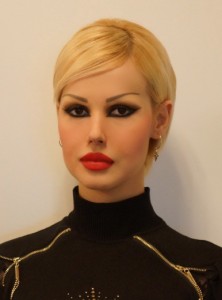“A’ish! Horreyyah! Adala Egtema’iya!” Who can forget the thrilling chant of the Egyptian people, as they cast off the oppression of Hosni Mubarak and demanded “bread, liberty, and social justice” in 2011? Even as the Brotherhood denies that tourism is wilting on the vine, the Egyptian pound is crashing, and Egypt’s foreign currency reserves have depleted to crisis levels, with no abatement in sight, the conspicuous military influence is generating a climate of fear, resentment, civil unrest and economic trauma which endangers Egypt’s access to a much needed loan from the International Monetary Fund (IMF) and her nearer neighbours.
Egypt stands at a crossroads; on one path lies a democratic, free-market oriented economy with full rights for all of its citizens, be they men, women, Christian, Muslim or Jew—a model of freedom wherein the citizens of Egypt may achieve their fullest potential in time. On the other path lie oppression, poverty, fear and a society in turmoil, where religious minorities and women are held down as second-class citizens and scapegoats.
Can a nation embrace democracy, free enterprise, and human rights without losing its Islamic identity? The Turkish model is a positive example. Consider: Turkey is both a European and an Anatolian nation—home to 85 million people, 99% of whom are Muslims, and has more mosques than any other country in the world.
To the extent that such an overwhelming number of the voters and public servants are Muslims, Islam plays an important role in public life. That said, there is a sharp contrast between Turkey and other countries, in which the government forces people to pay lip service to Islam through penalties and rewards.
Most Turkish Muslims understand that the call to Islam is a call to individuals, not to governments. This principle makes it impossible for a Turkish Muslim to support any form of official compulsion in matters of religion. The upshot is that while Turkish people follow Islam en masse, their devotion is voluntary and sincere.
Turkish political institutions remain democratic; suffrage is universal, economic opportunity is offered without discrimination; Jews, Christians and secular people enjoy equal rights under Turkish law.
The economic consequence of this arrangement has been a growing climate of social justice, which enables the Turkish people to pursue the “bread” of prosperity which the Egyptian people so recently demanded in Tahrir Square.
The Turkish social and political model differs sharply from the atheistic secular model which has debilitated Europe and America. Turkish secularism does not discourage religious people from voting, or holding public office. Indeed, Prime Minister Recep Tayyip Erdoğan is a well-trained imam, and he is as likely to quote the Quran as he is Turkish laws on any given occasion.
At the same time, the Turkish parliament and the judiciary do not give force to religious considerations in respect to public deliberations. This limitation ensures equal rights, and protects all Turks from the risk that some erroneous private interpretation of the Quran might become embedded in Turkish law.
Turkey’s strong consensus in favour of democracy and towards human rights has led to a gradual subservience of military to civil authority; which has, in turn, dispelled the climate of fear, which is so inimical to commerce, tourism, and the arts.
Turks dress in traditional garb or according to European styles, according to their individual preferences. Walk down the street in Istanbul, Ankara and İzmir, and you will hear educated people conversing in other languages.
People carry the Quran in their cars and read it at every opportunity. Beautiful, happy, devout women enter the mosque to pray, wearing make-up, without embarrassment or degradation.
Indeed, Turkish women complete higher education at a rate 15% higher than men. Consequently, there is little place for gender discrimination in employment or in wages, because they are abundantly qualified and well-compensated participants in a national economy which continues to enjoy annual growth. Obviously, this model would portend a great blessing to a nation like Egypt, which so far has discouraged women’s equal opportunity in employment, and loses the contribution of its women to national economic life.
Western countries have no common history of military coups in living memory and therefore they cannot fathom the role that religion plays in the lives of Muslim countries. Indeed, it seems that the West strongly abstains from even mentioning God in relation to political issues.
Therefore, the Western political mind has little to say to people who live in a region which has been shaped by Islam for 1,400 years. By comparison, the Turkish AK party is naturally sensitive to its constituents, and has been able to achieve a level of trust in partnership, which is a lesson that has escaped the Morsi regime.
It is not befitting a nation as noble as Egypt, “umm al-dunya”, the mother of the world, should flounder about in this way while her sister Turkey is enjoying the “bread, freedom, and justice” which Egypt’s children crave
Therefore, it stands to reason that Egypt should seek to emulate the model that is working in Turkey, not only in economic matters, but in socio-cultural matters as well.
Ceylan Ozbudak is a Turkish political analyst, TV host, and executive director of Building Bridges, an Istanbul-California based NGO. She can be followed on Twitter via @ceylanozbudak



